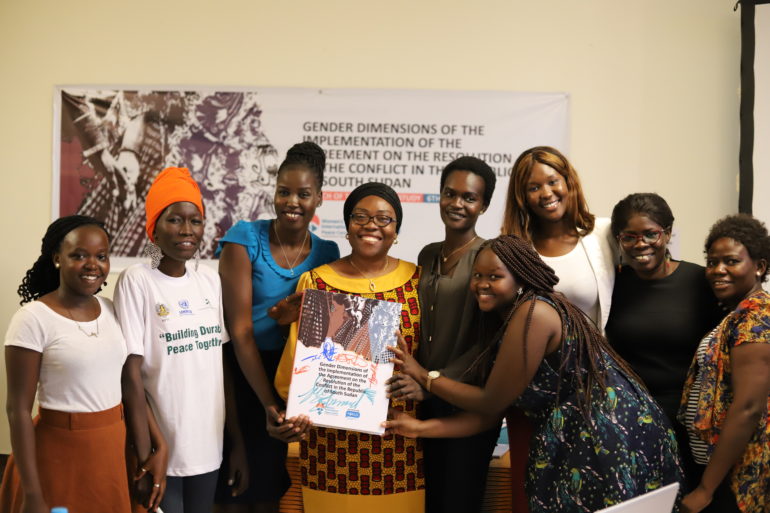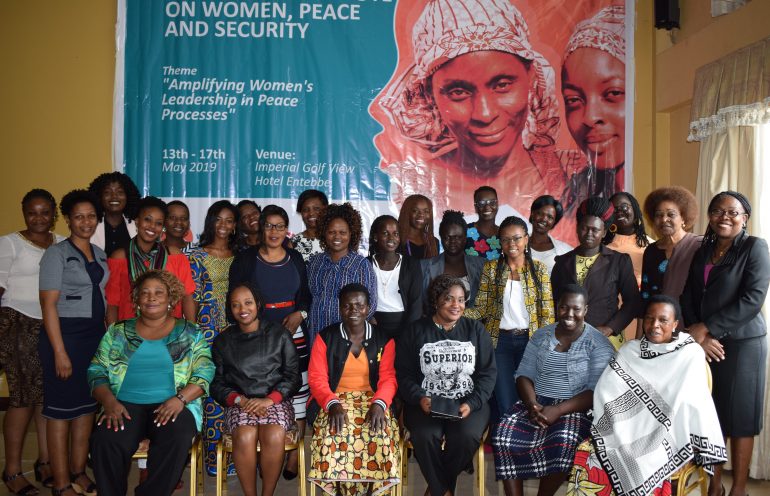Launch of the Research study on Gender Dimensions of the Implementation of the Agreement on the Resolution of the Conflict in the Republic of South Sudan.
February was an exciting month that kicked off with the launch of the research report on the Implementation of the Agreement on the Resolution of the Conflict in the Republic of South Sudan from a gender perspective. This research launch came on the occasion of the new political dispensation in South Sudan with the impending formation of the Revitalized Transitional Government of National Unity (R-TGoNU) in February.
This Research Study examined the opportunities, constraints, and extent to which women influence the peace process in South Sudan; and how women and young women’s advocacy efforts can be supported in ways that create new spaces for them to engage key decision-makers at national, regional and international levels. Methods of data collection included in-depth interviews with key informants, document review as well as a validation workshop with key stakeholders in Juba, South Sudan in December 2019 and January 2020.

The report also captures the following thematic areas of the Revitalized Peace Agreement; Revitalized Transitional Government of National Unity (TGONU), Permanent Ceasefire and Transitional Security Arrangements, Humanitarian Assistance and Reconstruction, Resource, Economic and Financial Management, Transitional Justice, Accountability, Reconciliation and Healing, and Parameters and Review of Permanent Constitution.

Women’s participation in peace processes is critical for sustainable peace. Women should be supported to participate in both the peace processes and the transitional government of National Unity- Zainab Osman
Participants during the launch acknowledged The Peace Centre for good work done to ensure a gender perspective is taken into context in the implementation of the TGONU. Several limitations were identified as challenges facing women in the implementation of the Revitalized Peace Agreement for the Resolution of Conflict in South Sudan. As a means of communicating strategies to support advocacy by women organizations, several recommendations were proposed.


